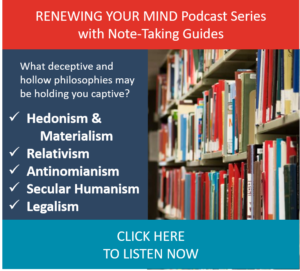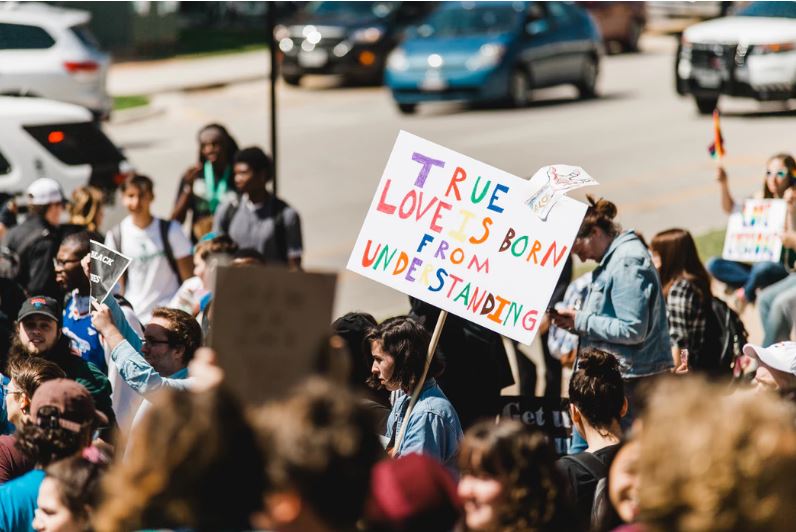We are creatures of habit. We tend to do the same things over and over and to create mental “checklists” to determine if we’re living up to our expectations – or if someone else is. We define and interpret the world around us through those checklists.
For example, our mental checklist for being a “good person” might include: being polite, being kind, giving to charity, forgiving others, and helping those in need. When we meet someone for the first time, we will subconsciously apply our checklist to their behavior. If they fail to say please or thank you, or if they aren’t helpful, we will surmise that they’re not a “good person” because they don’t tick the checkboxes on our list. I’m not making any value judgment on whether this is right or wrong, just that this is what we tend to do. It’s our brain’s way of quickly assessing situations and people in order to help us make sense of the world (or protect ourselves) without having to spend a lot of time and mental energy assessing everything from scratch.
We have mental checklists about everything – what it means to be a good employee, what it means to be healthy, what it means to be smart, what it means to be a good spouse or sibling or parent or child, what it means to have a quality life, what makes for a good job, what makes for a good car or a good meal or a good restaurant. It’s an exhausting list of checklists! But those checklists allow us to make quick (and, for the most part, accurate) assessments.
So, it should come as no surprise that people throughout history have always created checklists for religion and spirituality, whether consciously or subconsciously. In fact, God has been known to create a few lists of His own! Problems arise, though, when we fail to see that our own checklists are often flawed or shortsighted, or when we believe everyone’s checklist should be the same as ours. We also run into problems when we forget the reason behind the checklists and the checklists become an end in themselves.
Let’s see what this looks like when it comes to religion and our own Wesleyan/holiness heritage.
Of course, we are all aware of the problem with the Pharisees, who had taken the Old Testament Law and built a hedge of 613 commands around it to ensure no one broke it by accident. The first Pharisees were probably very righteous and conscientious men, but it didn’t take long for the meaning to get lost. All that remained were the checklists of what people could or couldn’t do.
John Wesley had his own list of what made someone holy or spiritual (see his list of 22 questions). In our denominational handbook, there have been some pretty stringent lists through the years ranging from the types of clothing to be worn, the types of behaviors to be avoided, and the specific acts of righteousness that should be performed. The lists were ways to define what a Christian looks like. How do we determine when we meet someone whether they are or are not a Christian? How do we make sure that we’re truly walking the narrow road and not getting sidetracked into sin? The lists were a way of moving us toward an ideal and keeping us in check. They were a sort of protection against falling short. They had great intentions, but once the motives behind the lists were lost, or once someone decided everyone needed to have the same list, we ended up with legalism: “the dependence on moral law rather than on personal religious faith.”
So, a fresh generation set out to escape the legalism of the past, advocating that some of the checklist items were passé – prohibitions against dancing, going to the movie theatre, playing cards, etc. Some even went as far as to say (in some circles) that alcohol and social drinking should no longer be prohibited by our membership commitments. The purpose of this post is not to argue any of those positions. What is most significant is that the new generation formulated their own checklist even while they were decrying the use of mental checklists at all. They were put off by the legalism of their parents and grandparents and sought to create a more authentic Christian experience. But old habits die hard, so the subconscious checklists returned.
Today’s checklists have more to do with how many homeless people you served, how many immigrants you helped, how many cans of food you donated last month. Instead of counting attendance as a sign of a healthy church, they started counting the number of families helped. However, altruism in and of itself is not necessarily indicative of a relationship with Christ. While they might argue their list is better than the lists of their predecessors, they are in danger of the same legalism as their predecessors: once we take our list and apply it to everyone, or once we forget the meaning of the list, people wind up checking off the items on the list without any thought of Jesus and their relationship with Him. They just do what they’re told to do and hope that it’s enough to get them to heaven. They begin trusting in the checklist instead of the Savior.
How can you keep yourself from falling into the trap of legalism?
Prayerfully ask yourself, “What does __________ look like to/for me?”
This is vital. God will speak to your spirit and let you know what He wants for you, and it might not be exactly what He wants from your pastor or lay leader or Christian friend. Fill in the blank with something specific, like:
- prayer
- compassion
- fellowship
- righteousness
- patriotism
- church
- love
- devotions or Bible study
- racial sensitivity
- generosity
- self-sacrifice
- stewardship
What does each of these items look like to you or for you? Someone else’s standard of prayer might be 30 to 60 minutes every morning or every night. Someone else’s might be quick one-sentence prayers all day long. While God might call some Christians to political activism, is it really His calling for every Christian? What is God calling you to do? I’m not advocating moral relativism here, but I do believe we need to figure out what God is asking us to do before we consider the checklist He’s given to someone else.
Check your list against Scripture.
God speaks to us most strongly through His Word. He will never ask you to do anything that contradicts His Word. And if He points a behavior or attitude out in the Bible as something every Christian should display, then you’re not exempt just because of your spiritual impressions (no matter how much you like your new checklist). There is no substitute for being in God’s Word. Read large passages of Scripture so you’re not led astray by proof-texting. Search through the Book of Acts and the letters of Paul, James, and Peter. Read what Jesus said in the Gospels. Always seek to understand what you read from the perspective of the original audience, and then ask God how to apply it to your own life. Your final checklist must be in complete harmony with Scripture as best you can understand it.
Remind yourself daily why you do what you do.
If you write out a check to your church or favorite charity, remind yourself that they do good work and you want to see their ministries move forward. Don’t simply write the check out of habit and without conscious thought. You don’t want your list to become devoid of meaning. Make every action a meaningful one.
Carefully consider the lists of others.
Listen when others are sharing their lists. Now, no one is going to come up to you and say, “This is my list. I think you should follow it,” but if you read between the lines on social media posts, you’ll find that that’s exactly what they say. “I finally had a spiritual breakthrough and gave my life 100% to God. And now I realize that it’s every Christian’s responsibility to do [fill in the blank], so I’m doing it this weekend.” Someone is trying to make you feel guilty (or less Christian) because your list doesn’t include that item. Don’t let anyone bully you into accepting their list as your own. That would be a type of legalism. But do listen and try to figure out why God has placed this item on their list and not yours. Are you not mature enough for that yet? Is the item an “every Christian” command? If so, is there more than one expression of obedience to that command? Is there value to what they want you to do? And then pray some more and ask God if it’s an item you should add to your list.
Always be teachable and flexible. God may change your list!
God doesn’t want us to become comfortable with our checklists. When we do, we’re at risk of just going through the motions, of performing the list without the relationship. That’s when our Christianity drifts into legalism. It is all too easy to replace Jesus with a checklist and to be lulled into complacency.
As you grow, God may change what He expects you to do. Always be willing to change your list accordingly. That doesn’t mean changing your convictions on a whim or simply because you want to do something God formerly told you was wrong. Your changing list should always be drawing you closer to God. As you come to know His heart and will, He’ll challenge you with list items that will stretch you and take you to new heights.
Don’t expect everyone else to adopt your list.
And remember, your list is yours. Don’t let arrogance and pride cause you to think your list is “better” or more spiritual or more holy than someone else’s. If God gave them their list, then accept that and make differences a matter of prayer.
You’re responsible to God for your list – the list He revealed to you. Be faithful. Walk in faith. Trust in Jesus and not your list. Seek to learn and grow. And don’t judge others by your list. God has a task for each of us, and He knows how we’re wired and how He’s gifted each of us uniquely. Just follow in obedience, and you’ll keep legalism at bay.
If you liked this article, you might also enjoy…








